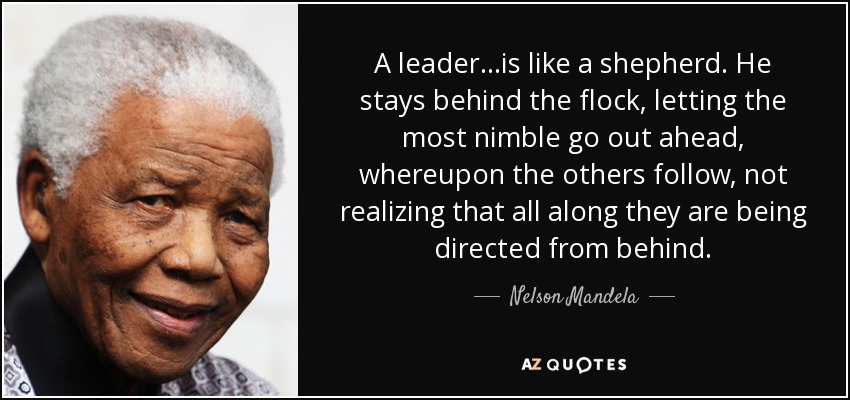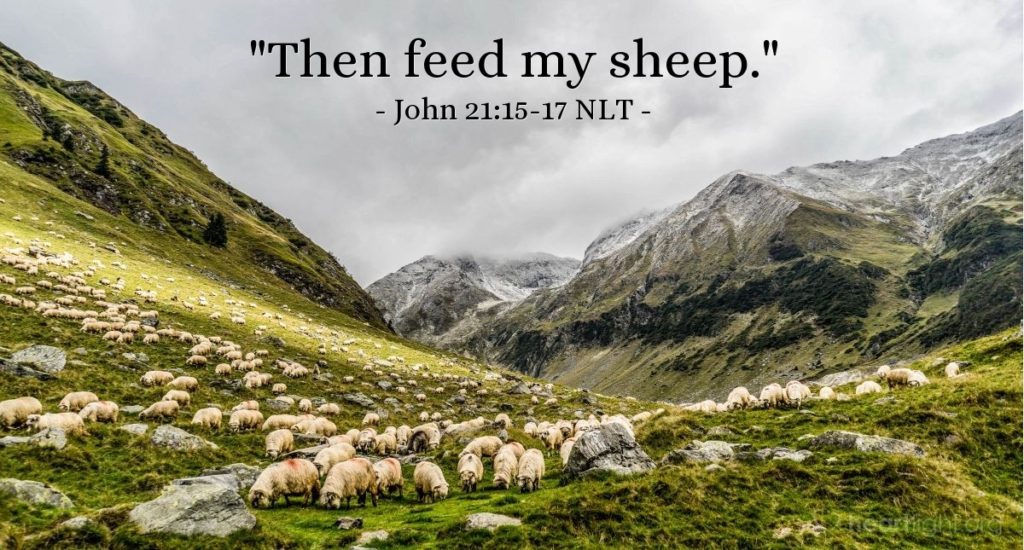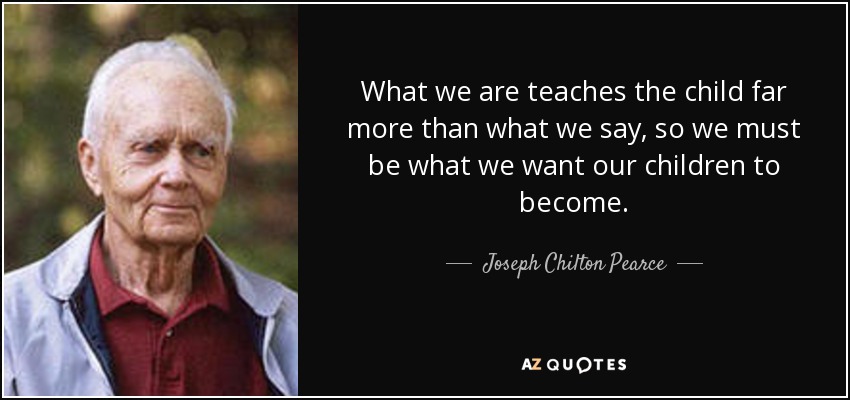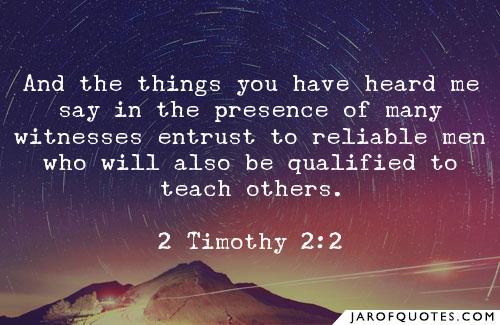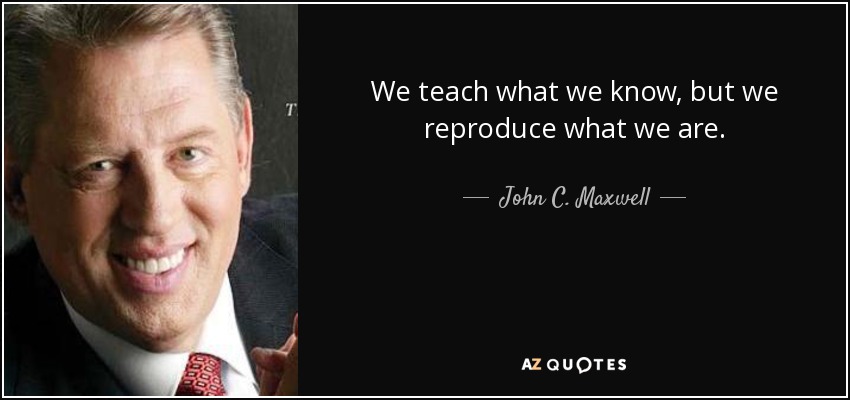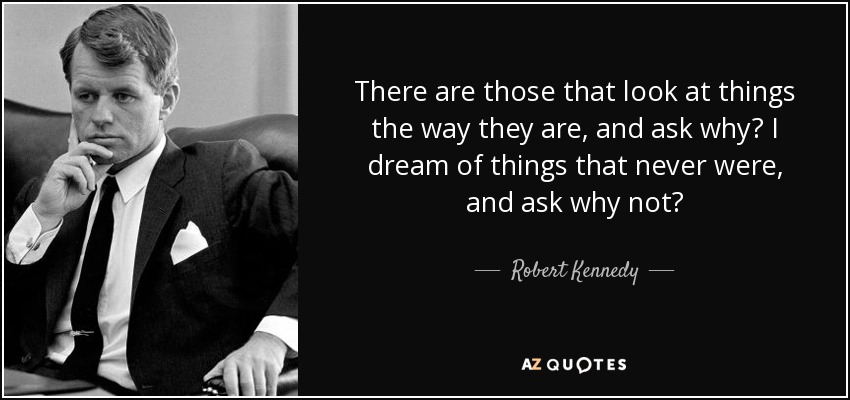Click here to return to Blog Post Intro
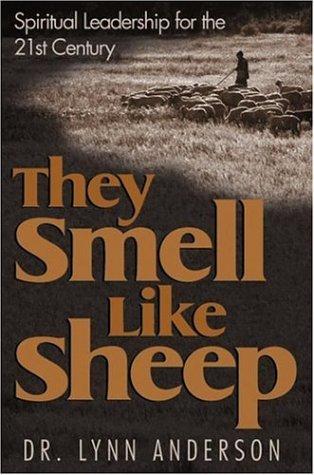
Part 1 – A Biblical Look at Spiritual Leadership Principles: The Sort of Things Leaders Do
Section One: Shepherds
Shepherds on the Hills of Bible History
As Ted Waller reminded Anderson, in antiquity, the family often depended upon sheep for survival. A large part of their diet was milk and cheese. Occasionally, they ate the meat. Their clothing and tents were made of wool and skins. Their social position often depended upon the well-being of the flock, just as we depend upon jobs and businesses, cars and houses. Family honor might depend upon defending the flock.
The shepherd metaphor shows up more than five hundred times in Scripture, across both Old and New Testaments. Without question, the dominant biblical model for spiritual leadership is the shepherd and flock. If we want to understand the biblical model for leadership, we must embrace the concept of shepherd.
Most of us can quote the familiar words, “The Lord is my shepherd.” Think of it. Jesus left the comforts of heaven and came into our universe, our pasture, to smell like sheep! Jesus sweated like we do. He walked our pathways, braved our wolves, faced our temptations, and shared our struggles. The Holy One of Israel came in Jesus Christ to be our good shepherd.
This is the essence of spiritual leadership: sheep following a shepherd because they know and trust him.
Jesus, the Chief Shepherd is our model: He is the archetype, the blueprint, for the way modern, Christian leadership gets done. Good spiritual shepherds today imitate the Chief Shepherd. Like him, they attract flocks through loving service and authentic relationships. Like him, they feed and protect their flocks. They know their flocks and their flocks know them. They are trusted as men and women who are committed enough to put their lives on the line, daily, for the precious people they lead.
Three times in one brief conversation, Jesus charged Peter (possibly as a representative of the entire apostolate): “Feed my lambs,” “Take care of my sheep,” and “Feed my sheep.” By implication he is saying, “Adopt my spiritual leadership style.”
A shepherd is someone who has a flock. Flocks naturally gather around food, protection, affection, touch, and voice. Biblical shepherds are those who live among the sheep; serve the sheep; feed, water, and protect the sheep; touch and talk to the sheep—even lay down their lives for the sheep. Biblical shepherds smell like sheep.
The shepherd and flock relationship eloquently implies at least three qualities of spiritual leadership: availability, commitment, and trust. Shepherding sheep requires a long-term, costly commitment of self, time, and energy and the building of open, authentic relationships.
Sheep follow their shepherd “because they know his voice.” Trust is earned, not demanded, and it is built over time. When the lives of leaders are invested in the lives of sheep, the sheep come to know and trust their voices. Being placed in a leadership position does not guarantee a following, but a trail of sheep will usually follow the voice of a trusted shepherd.
Distorted Leadership Models
Some people in leadership roles confuse shepherds and cowboys, but the difference is elementary—shepherds lead; cowboys drive. Anderson’s father used to say, “A church leader who has to assert his authority doesn’t have much.”
The CEO model works mostly behind closed, boardroom doors— making decisions, tapping gavels, dispatching memos, and announcing edicts: “It’s policy. And that’s that!”
The proof that the CEO model doesn’t work is in the absence of a following, for this kind of leader has no flock. No one comes to such leaders for shepherding, and the troubled and timid know to avoid them.
As Gene Wilkes, author of Jesus on Leadership put it, “In too many churches today, head tables have replaced towels and wash basins as symbols of leadership among God’s people.”
Fast-Lane Flocks and Cyber-World Shepherds
How do you get sheep smell on you when you don’t touch them—except for a handshake and some quick words in the aisle Sunday morning?
There is no simple plan that will work for “cyber-world shepherds”; yet, we must not, cannot, allow the culture to swallow up the designs of God.
Conference calls, faxes, and e-mail are not ideal, of course; nevertheless, in our cyber-world, they are becoming a new way to “reach out and touch someone.”
The impersonality of cyber-world technology definitely presents huge downsides, but this new technology can be a “rod and staff” in the hands of a thoughtful shepherd who uses it intentionally.
Section Two: Mentors
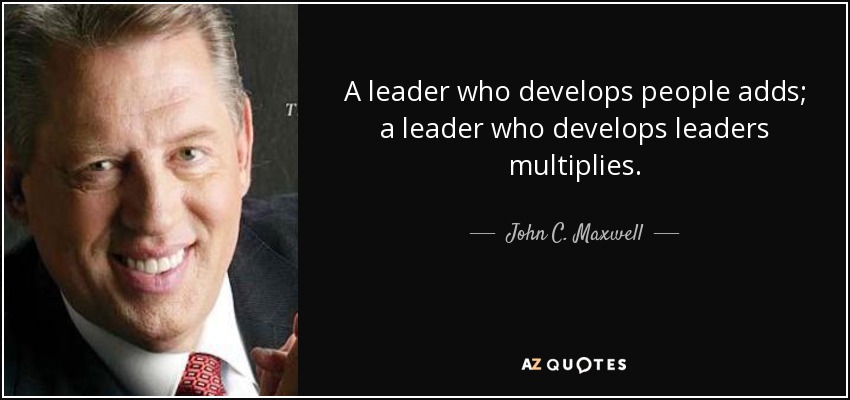
Those Who Have Walked a Long Time in the Same Direction
Here’s one way to think about Mentoring. A mentor, in one sense, is another dimension of shepherd, but with a different emphasis. Shepherds feed, protect, and care for sheep; mentors pull up alongside human beings and model behavior, values, and faith through the shared life.
Recall the story of Odysseus. When he set out for Troy, he entrusted his house and the education of his son, Telemachus, to a character named Mentor. Hence, our dictionary defines mentor as “advisor; a wise and trusted counselor or teacher.” Thus, in both the Latin and Greek languages, the term mentor literally came to mean “advisor” or “wise man.”
When we are fortunate enough to be surrounded by healthy, functional, caring people, we tend to become like them. Loving, nurturing moms and dads pass on healthy family dynamics to their children. Caring, involved teachers inspire students to imitate their style and vision. And godly, spiritual leaders provide healthy role models for growing Christians.
Jesus mentored his twelve, but his leadership style stood conventional leadership on its head. Jesus drew a bold contrast between aggressive, competitive, controlling, worldly leadership and spiritual leadership. Jesus made it clear that his leadership style is based on submission and service, not on authority.
To provide for the mentoring needs of their local community of faith, leaders must be intentional, continually expanding the circle of mentors by equipping others to mentor. No matter where we are on the journey, we are likely to follow the path of other people who have been following Jesus ahead of us.
How to Mentor
Who we are teaches far more than what we say, and this truth can work to bless the church, as well as to harm.
Good spiritual leaders are shepherds, not saviors, leaders not lords, guides not gods.
God desires winsome mentors who naturally attract followers to them; God needs strong mentors who do more than tell others how to live, but who show them; and God needs faithful mentors who inspire others with the courage to continue on.
Not only do attractive mentors draw followers and strong mentors show us how to live, but faithful mentors give us hope to keep on trying when we are tempted to give up.
Consider this. A simple time investment of 2-3 hours a week can have an eternal impact.
Section Three: Equippers
I do; you watch. I do; you help. You do; I help. You do; I watch. You know! We do together as a team. Rusty Caldwell
“Use ’Em or Lose ’Em”
Ineffective equipping and ineffective assimilation are two of the most critical growth-stoppers in many churches today.
Church leaders often end up doing the bulk of the service in the church, rather than equipping the rest of the Christians to do the tasks for which God has specifically given them gifts and opportunities.
A major role of church leaders is to help each Christian discover, develop (be trained), and use his or her spiritual gifts in the building up of the body—as “each part does its work.”
Equipping requires attention to God’s distribution of spiritual giftedness, and it involves matching gifts of individuals to ministry needs. It does not mean simply dumping jobs onto available bodies.
Leaders must (1) delegate meaningful tasks to others, who (2) have spiritual gifts and passions suited to those tasks, then (3) equip them with skills to do those ministry tasks.
How the Chief Shepherd Equipped His Flock
Good equippers do it like Jesus did it: recruit twelve, graduate eleven, and focus on three. Lynn Anderson
Jesus’ ministry touched people on several different levels of relational intimacy. At the first level, Jesus fed and preached to thousands. We read in Luke 12:1, “When a crowd of many thousands had gathered, so that they were trampling on one another, Jesus began to speak.”
Second, Jesus worked with hundreds— for example, the circle of one hundred twenty loyal followers who gathered in Jerusalem in Acts 1:15.
The third circle of Jesus’ relationships narrowed sharply as he sent out only seventy-two for a special mission. At the fourth level, when Jesus zeroed in on only twelve men.
On a fifth level, Jesus had a few especially close friends. Jesus didn’t share the same level of intimacy with all twelve of his disciples. Like all normal human beings, Jesus had special friends— Peter, James, and John appear to have shared a special closeness with Jesus.
Are you an equipper? As shepherd Grady Jolly said repeatedly, “Find someone who knows more than you and learn from that person. And find someone who needs what you know and teach that person. Every Christian is a student; every Christian is a teacher.”
Sixth and finally, let us follow Jesus one level deeper into his relationships to “one… disciple whom Jesus loved.”
Please note that leaders who focus on a smaller circle is not the shirking of responsibility—not by a long shot. In fact, in this way, over the long haul, far more people will be equipped and “doing ministry”; consequently, the flock will be better shepherded, more ministry will get done, and the church will “build itself up in love, as each part does its work.” Plus— weary leaders will feel their burdens lift.
Remember Paul’s charge to Timothy below.
Equipping calls for consistent investment of time in another person’s life and patience as that person appears, at times, to barely crawl up the learning curve. It also calls for vulnerability and openness—and intentional effort.
Equipping through the Shared Life
Jesus Himself accomplished much in three years—apparently with no other job and with no family responsibilities—in the lives of twelve men who also apparently had no other commitments. Obviously, most church leaders—who are busy business and professional people with family responsibilities and whose flocks also are mostly busy, professional people with families—cannot be expected to duplicate Jesus’ pace.
Following are some principles of equipping that can be observed in the ministry of Jesus.
- Frequent and Long-Term Contact: Jesus and his disciples spent most of three years on the road, walking! And as they walked and talked, Jesus built his life into these men, equipping them for the ministry that lay ahead.
- Warm and Loving Relationships: Jesus enjoyed a warm and loving personal relationship with his trainees.
- Honest Exposure of Emotions: Those equipped by Jesus were exposed to his emotions. Remember John 11:35, “Jesus wept.” Jesus wept because Jesus cared. The cleansing of the temple reveals Jesus’ raw emotions even more forcefully. Jesus flashed white-hot anger at the money changers in the temple. Someone said, “You can measure the character of a man by the size of the things that make him angry.” The object of Jesus’ huge anger that day was no little thing. Shepherds today who follow the Chief Shepherd’s style of equipping will be vulnerable and expressive, unafraid to reveal their emotions. They will make the best spiritual leaders.
- A Variety of Shared-Life Experiences: Those equipped by Jesus observed him in a variety of life settings. Find Jesus with his disciples at the synagogue—on the road—by the sea—by a hillside—on the road—in the temple—by a well—in a boat—at a wedding—on the road—on the mountain—in the garden—in court—at banquets—on the road… During their travels with him, the Twelve saw Jesus in nearly every conceivable life setting. As Max Lucado pictures it, “They saw the wax in his ears, the dandruff on his shoulders, heard him snore, smelled his breath, saw him sweat. They were run out of town with him and saw thousands give him the red-carpet treatment.”
- A Life of Integrity: Those equipped by Jesus saw consistency between his teachings and his actual behavior. He practiced the same life-style that he taught. Spiritual leaders in today’s church equip out of the credibility of their lives, demonstrating consistency between what they say and what they do. As the old poem puts it: “I’d rather see a sermon than hear one, any day. I’d rather someone walk with me than merely point the way.”
- Time Balanced Between Problem and Possibility People: Today’s spiritual leaders do well to follow his example and spend at least as much time with possibility people as they spend with problem people.
Part 2 – A Biblical Look at Elders: The Sort of People They Are
Section One: A character sketch
Example is not the main thing in persuading others; it’s the only thing. Albert Schweitzer
Just what Is an Elder?
First and foremost, elders are shepherds. There is a genuine relationship between the shepherd and the sheep. In fact, through long time and frequent touch, the shepherds smell like sheep.
An elder is the kind of person you would choose in a crunch: an elder has the experience, character, and vision to guide, comfort, and advise the sheep of his flock.
Elders are also mentors—persons who have walked over the trail ahead of us—a long time in the same direction.
Elders are equippers. They prepare Christians to do works of service. Above all, whether shepherding, mentoring, or equipping, elders do their best work through relationships.
Obviously, shepherding, mentoring, and equipping, defined by the three words used in Acts 20 and 1 Peter 5, along with the character sketches in 1 Timothy and Titus, add up to some mighty lofty expectations.
Perhaps the following excerpt from Max Lucado’s booklet on biblical leadership will put things in perspective: Elders are called to raise the bar in the church. They set the example and lift the standard of what it means to be a Christian. Ideally, an elder should do for your life what my brother’s friends did for my high-jumping. Being with them should cause us to think higher thoughts and set higher dreams. The life of an elder should inspire us to raise the bar in our home life, prayer life, character, and dedication.
Shepherd, mentor, equipper—three models that add up to strong, spiritual leaders. Elder, shepherd, overseer—three words that give dimension to the role of the biblical elder. These concepts help us see what elders do.
Elders are people of experience, character, and vision.
Experience
Elders have experience with life. They’ve been around a while. In fact, the word “elder” means “older.” More technically, the very word presbuteroi (elders) implies age, maturity, and experience.
An elder must be someone who has lived long enough to have logged a track record. This record answers some critical questions: Does he know himself? Does he know people? Can he stand pressure and remain calm in the midst of confusion and conflict?
Second, an elder must have long spiritual experience— one who has been around Jesus for a long time—not merely a person who has blown out an acre of birthday candles. Paul warns that an elder should not be “a novice” or “new convert.”
A good elder has not only been around the Lord a long time, he has been around the devil, too. He has wrestled with sin and temptation—and won.
An elder must also be a person who has been around the Bible for a good long while, a man who is thoroughly experienced in the Word. The church needs elders who “live in the Word,” not merely “study the Bible.” The man who is experienced with the Word has assimilated the Bible into his life, so that his teaching serves up life resources and strength to others. This teacher will not only be at home with the Bible, but at home sharing it with his flock.
Elders are charged to “encourage others by sound doctrine.” Doctrine, however, is not merely information. It is not merely ethereal concepts such as justification, sanctification, redemption, predestination, and all those other words that end in -tion. Rather, doctrine, from Paul’s pen, is practical teaching about how to live day to day in the trenches.
In summary, then, an elder must be a person of the Word: one who knows it, lives it, and can teach it in ways that excite the faith and shape the lives of others.
Life experience and Bible knowledge must be tested in the crucible of family relationships. Here is where a leader’s true character comes through. If he is not able to maintain healthy relationships at home, why would the church want his advice—much less his spiritual leadership?
That means an elder has demonstrated a successful marriage relationship. Paul said an elder is to be the “husband of but one wife.” Literally, in Greek, this means a “one-woman man.” First, this line obviously addresses moral purity. An elder cannot be one who chases women or even has “eyes full of adultery.”
Second, beyond unquestioned fidelity, “one-woman man” also carries positive implications. It not only describes what he will not do, it tells us what he will do. A one-woman man manages and nourishes a healthy intimate relationship with his wife. They are happy together.
Third, “one-woman man” describes this person as a lover. He knows how to love his wife, how to make her feel securely cherished and valued. Why would we expect a man to love God’s church when he has not done a good job of loving his own wife?
Fourth, and possibly most important of all, a one-woman man demonstrates by the stability of his marriage that he can keep covenants. He is a promise keeper.
An elder’s relationship with his children also calls for special attention. In fact, Paul zeros in on the parenting qualities of shepherds in both 1 Timothy 3:4–5 and in Titus 1:5–6.
First, an elder is to have “children that believe.” Literally, the Greek says “faithful children.” Some serious students of Scripture contend that this does not mean specifically that children be “faithful to Christ”; rather, that Paul means they are to be faithful to their parents! The parents can trust them, and they respect their parents.
The “believing children” are not little kids. “Children,” in the extended family of Paul’s world, included adult children. So the question is not, “Did he get ’em baptized before high school graduation?” but, “Did he give them a faith that determines the way they live for a lifetime?”
Obviously, Paul believes a man’s ability to build and maintain healthy relationships in his home provides evidence that he can do so in a church. He sees a strong connection between the spiritual leadership qualities of parents and the way their adult children live their lives.
There is high correlation between an elder’s ability to shape a “faith-contagious” environment in his home and his ability to do so in the church.
The point of all of this can be summed up this way: look for people who, over the long haul, have produced stable, believing families.
Finally—yet of massive significance—Paul’s character sketches for spiritual leaders picture elders who are experienced lovers. Anderson notes that a “wise ancient” in his congregation stopped him one morning after a message on spiritual leadership and quite emotionally asserted, “When it comes to selecting elders, if you ask me to choose between leadership and compassion, I’ll take compassion every time.”
They must be “lovers of God” and love the people of God.
The best shepherd is approachable: warm and sensitive, not conceited, “not violent but gentle, not quarrelsome.”
Today’s elders must model the great commandment. They are called to be people of the great commission. Good shepherds are lovers of people who don’t know God. Lost people matter to God. They are God’s heart—his passion.
Long experience at life, long experience at being a Christian, and the ability to be effective teachers of the Word are “musts” for spiritual leaders. However, these qualities alone do not necessarily make one an effective spiritual leader. All three—age, experience, and knowledge—must be tested in the crucible of family living.
Character
A follower of Jesus Christ who seeks to lead like Jesus must be willing to be treated like Jesus. Some will follow. Others will throw stones. C. Gene Wilkes
The apostle Paul’s pastoral sketches spread before us in a collage of God-valued character traits. For purposes of brevity we gather them into three clusters: consistency, self-control, and courage.
- Consistency
Elders must be people who are consistent enough in character to earn the trust and respect of those who know them. His character must be respected, says Paul, not just within the church, but “with outsiders” as well.
An elder must not only be consistently respected to be a good shepherd, he must also be consistently present.
- Self-Control
A self-controlled person manages his temper and absorbs hostility, keeps his cool under attack, and returns good for evil. The late Carl Spain, a fine New Testament scholar, described this person as “the kind of man who doesn’t settle arguments with his fists.”
A shepherd-hearted man also controls his money—rather than allowing his money to control him. A man of spiritual-leadership caliber controls his appetites. Both Titus and Timothy were told that an elder shall not be “given to drunkenness.”
If “self-control” means on the one hand that a person is to be in control of the volatile, negative elements of his or her nature, then on the other hand, positive self-control is to exercise “discipline.” Discipline is the positive side of self-control.
As Wendell Broom says, “Most of the good that is done in this old world is done by people who don’t feel like it at the time.”
- Courage
Paul calls him a “respectable” man because he displays the courage to develop and pursue his own convictions. A man of character, bottom line, is a man who is authentic and who genuinely seeks to be God’s man. This gives him the courage to do God’s will and to love and serve God’s people—no matter what it costs him personally.
Consistency. Self-control. Courage. Rare these days. But these are key character traits called for in Scripture and indispensable to the shepherds of God’s flock.
Vision
While leading any church requires authentic men of God with true shepherding skills, most contemporary churches also need men of vision—men who will lead boldly, men who not only dream, but who have the “chutzpah” to transform dreams into reality.
Today’s church calls for leaders who drive beyond their headlights and who design churches for people “who aren’t here yet,” rather than defending models designed long ago to reach those who have long since come and gone and who don’t live here any more.
It is not essential that all shepherds be bold visionary leaders—that is, if they will give themselves to shepherding and delegate the bold, visionary leading to persons in their congregations who are visionaries with leadership gifts.
Today’s churches need elders who are flexible.
Biblical models of leadership require a workable sheep-to-shepherd ratio. Healthy churches have enough shepherds to maintain authentic, intimate shepherd/flock relationships.
The Bible doesn’t charge shepherds with the responsibility of “having meetings.” However, as we have noticed, Scripture mandates elders to shepherd, mentor, and equip the flock! Expanding the number of leaders in each congregation might impede corporate procedures, all right, but the shepherding and equipping potential would be vastly improved!
Decision making, having meetings, and administrating—while they may have a place in implementing certain minor parts of the elder’s role—do not constitute the biblical focus of God’s calling for shepherds.
We may be robbing God’s people of the very spiritual guidance so desperately needed in our times, when we actually replace God’s shepherd model with our own corporate model. Please ponder this carefully: an ecclesiastical system that runs better when it sacrifices its biblical leadership function (shepherding, mentoring, equipping) to protect a nonbiblical function (efficient management and administration) cannot be of God! Repeat: cannot be of God!
Our times call for spiritually discerning elders, who understand clearly the difference between shepherding and administration, between managing and leading.
To be sure, managing and administration must happen. They are not four-letter words. But there are plenty of capable hands in most churches into which those chores can be passed. Today, more than ever, elders absolutely must be willing to delegate non-shepherding tasks to deacons and others. This is no small issue.
Shepherds serve people best when their hearts long most deeply for the glory of God. Jesus even said, “How can you believe [if you] receive glory from one another and do not seek the glory that comes from the only God?”
Remember, the qualities of elders in Scripture are character sketches, not legal checklists. The Bible sketches an absolute ideal. However, in the real world, we are constrained to settle for the leadership of flawed human beings.
Section Two: Authority
Sometimes pastors become pastures. The sheep feed on them and trample them, but do not follow them. Mark Absher
The Biblical Language of “Authority”
Some unfortunate vocabulary has inflicted long-term damage to our understanding of spiritual leadership—words like rule, authority, submit, and obey. These bruising words didn’t come from the Bible, however. That language was actually coined by seventeenth-century Anglican ecclesiastical tradition and was passed on to us through the King James translators.
The King James Bible translates 1 Timothy 3:1, “If a man desires the office of a bishop, he desireth a good work.” The word office derails our thinking in at least two ways:
- It sends our minds down the path leading to an institutional paradigm of the church—so alien to the organic paradigms of the New Testament.
- The “office” concept postures elders as agents of institutionalized authority—so alien to the shepherd, mentor, and equipper models of the New Testament. Biblically speaking, bishop (elder, shepherd) is a function, not an office; a task, not a position.
In the New Testament, the word episkeptomai expresses a fundamental Christian teaching: that each of us exists for the other. Jesus taught us to care for one another, and James said we are to “look after” orphans and widows, describing this as “pure and faultless” religion. Therefore, we love one another and submit to one another, each considering others better than himself.
The elder is to “manage” (proisteemi) his family, but he is to “take care of” (epimeleomai) the church. “If anyone does not know how to manage [proisteemi] his own family, how can he take care of [epimeleomai] the church of God?”
Proisteemi in 1 Timothy 5:17 does not imply “ruling” elders and “obeying” members. Rather, the biblical understanding of proisteemi is far more compatible with the shepherd-mentor-equipper metaphors (which we explored previously) than with the idea of ruling authority figures.
When Jesus contrasted godly leadership, “one who serves,” with the authoritarian style of worldly leaders who “exercise lordship and authority,” he stated flatly, “I don’t want you leading like the pagans!”
Elders definitely carry leadership responsibility. However, only with great reluctance should this leadership be called “authority” since the usual Greek “power” words, exousia and timee, are never used in connection with elders. Godly leadership is to be understood in terms of service rather than authority. Jesus is adamant on this point.
Let us not, therefore, jump to the conclusion that elders have no authority. Good shepherds carry enormous authority, but it is the authority of moral suasion, not of rank.
The words Scripture most commonly uses for spiritual leaders—elders, pastors, bishops—are clearly not “office” words or “authority” words. Rather, they are descriptive words, describing the relational nature of spiritual leadership.
The Authority of Moral Suasion
An elder who has to assert his authority usually doesn’t have much. Lawrence Anderson
In short, the elder’s heart and character determine the length of his tenure.
Since Scripture does not spell out the tenure of an elder, his work should last as long as his moral suasion remains intact and as long as age, health, and spiritual qualities allow him to function in that shepherding, mentoring, equipping role.
A Stroll into the Morning
Being a godly shepherd does not require special looks, brains, or talent; in fact, God is depending on ordinary people like you and me to step into his “doable” models of shepherding, mentoring, and equipping.
As John Killinger describes it, “Turning sheep into shepherds is not very hard when you think of it this way. It is loving them until they are ready to share the love too—until they can’t help sharing it because it is filling their lives and running over and has to go somewhere…”
So, are you ready to “Smell Like Sheep”, as you shoot for the stars?


